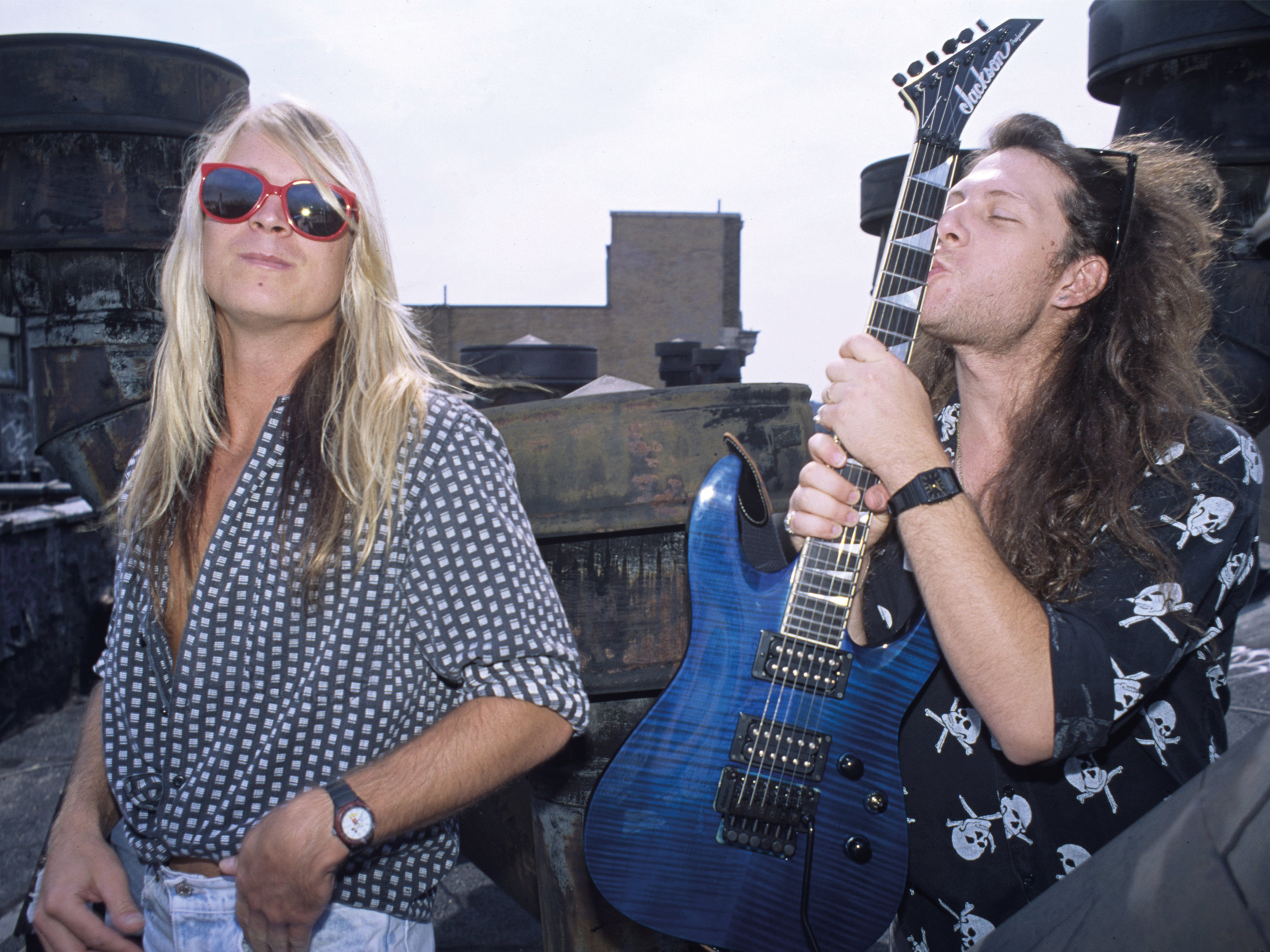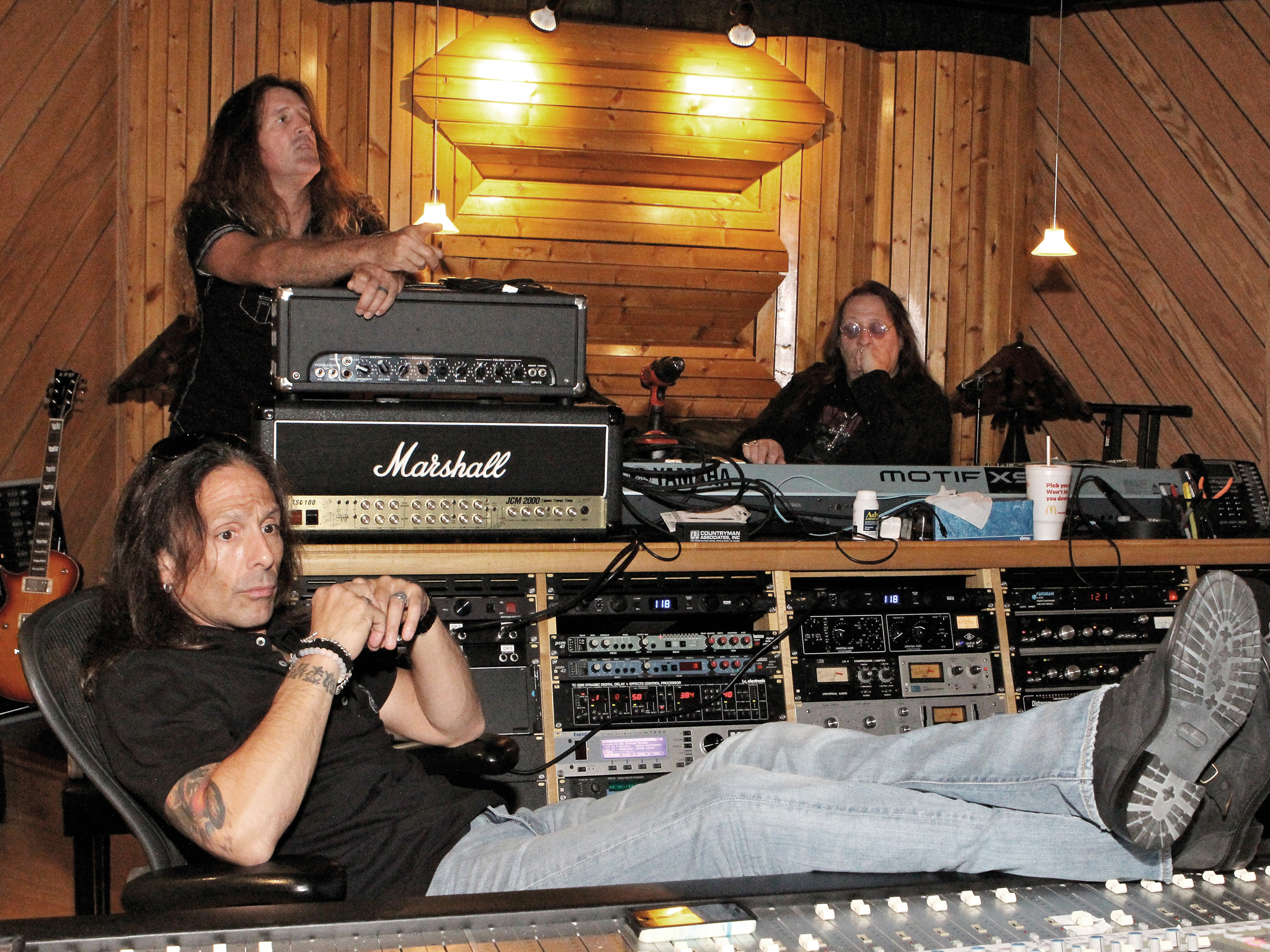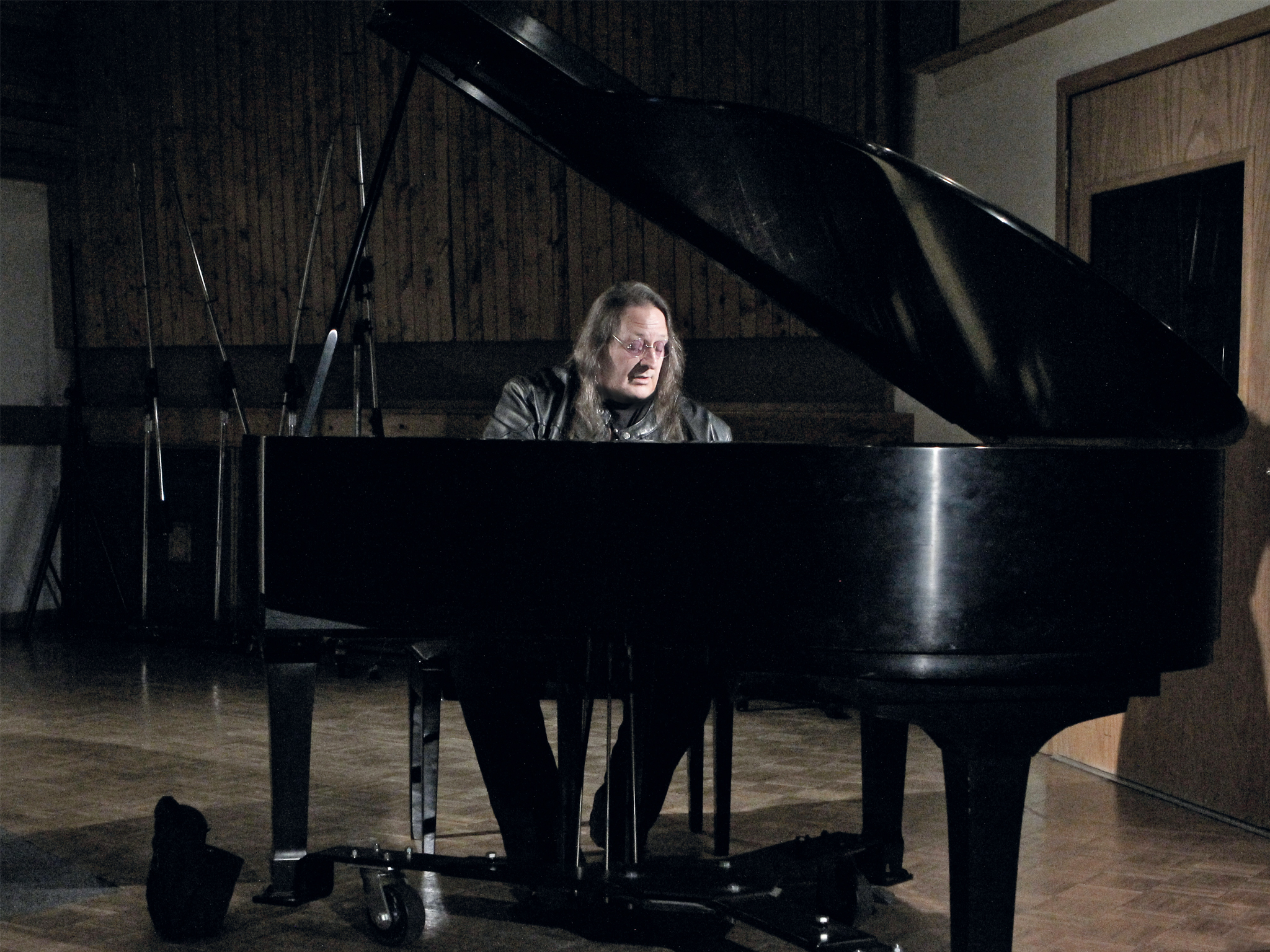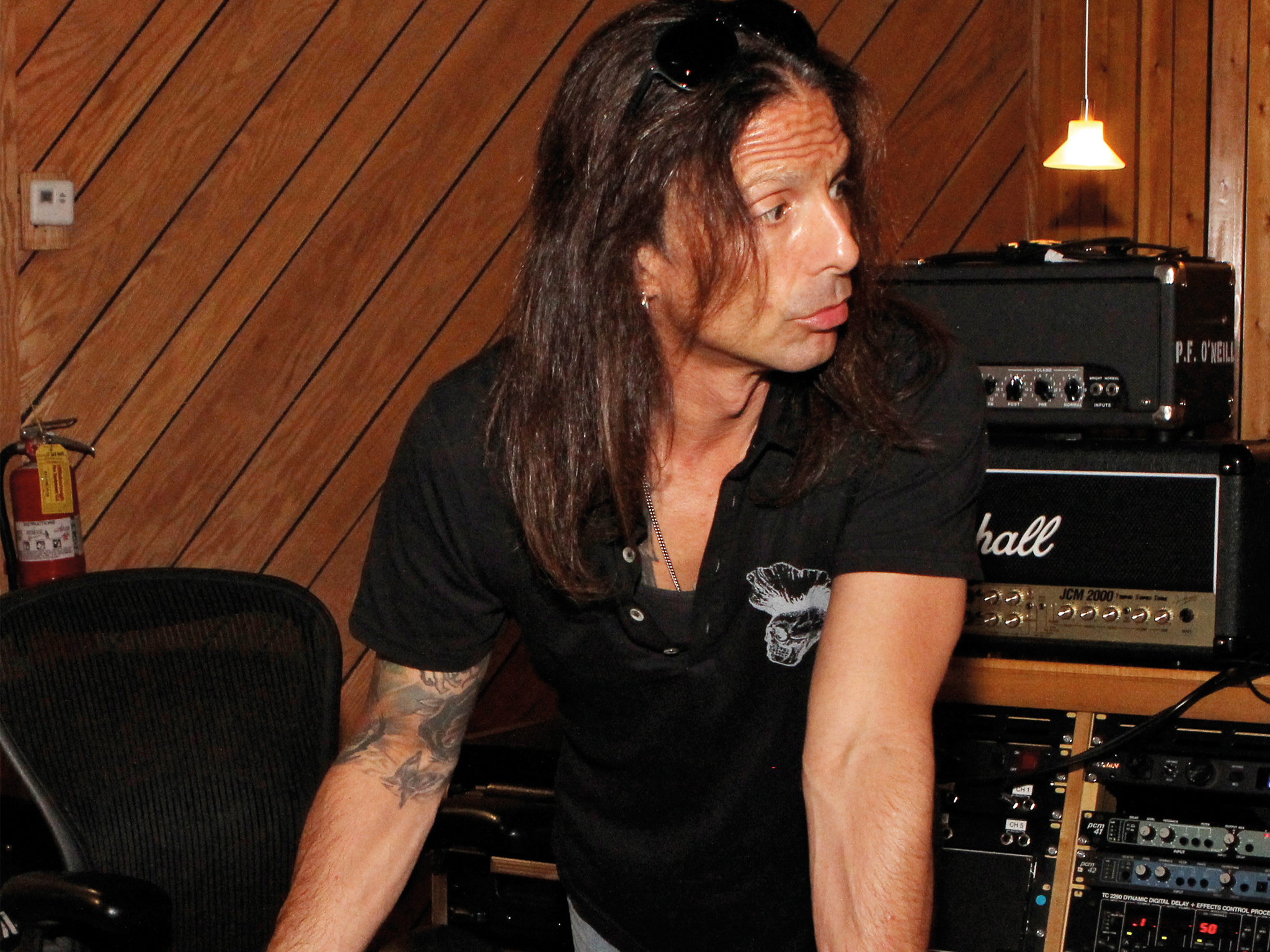In the 1980s and 1990s, Tampa’s Morrisound Recording was the extreme metal equivalent of Memphis’ Sun Studio or Motown’s Hitsville USA, a near‑mythic locale where some of the genre’s most notable releases were tracked. After regional acts such as Deicide, Morbid Angel and Obituary helped to put the studio on the map, groups from around the world flocked to the facility, including Napalm Death, Sepultura and Cannibal Corpse, the latter even relocating to Florida from Buffalo because of the thriving local scene Morrisound helped to spawn. It was there where Cynic recorded the prog-metal landmark Focus, as well as where Chuck Schuldiner recorded most of Death’s celebrated catalogue.
Nowadays, Morrisound is known as Night Castle Studios, named after the 2009 rock opera by its new owners, Trans-Siberian Orchestra. While recording multiple Savatage albums on site over the years, TSO principals Paul O’Neill and Jon Oliva became intimately familiar with the facility and its equipment, and after O’Neill moved to Florida from New York City a few years back, Morrisound became his home away from home – a private musical laboratory where he could experiment at will.
NOTHING WE HAVE DONE IN THE LAST 20 YEARS HAS BEEN SCRIPTED, SO WHAT MAKES YOU THINK WE’RE GOING TO SCRIPT THE NEXT 20?
Soon after Night Castle was released, TSO began recording multiple albums concurrently, and on a recent humid summer day, the group were back in the studio, preparing to put the finishing touches on their latest effort – Letters From The Labyrinth, their third non-holiday offering. It will be released this autumn, following TSO’s performance at Germany’s Wacken Open Air festival, the first date of a world tour planned to include additional European dates in the spring of 2016.
At the time of going to press, Wacken has yet to happen, but TSO are set to perform alongside Savatage, the group from which they spawned two decades ago. The particulars aren’t entirely clear just yet – “As far as who’s doing what,” says TSO/Savatage guitarist Al Pitrelli, “I guarantee you the Sava band, I guarantee you a TSO band, and I guarantee you I ain’t going to say anything else…” – but one way or another, Wacken will mark the first official Savatage concert in 13 years.

O’Neill and Oliva both insist there was no blueprint calling for Savatage’s hiatus to last so long. “TSO just got so big so fast, and I would love to say there’s this plan, this incredibly genius idea, but it blindsided us,” says O’Neill.
For the uninitiated, TSO’s annual winter live extravaganza is perennially one of America’s top-grossing tours, playing to nearly one million people in sold-out arenas every holiday season. The band’s live roots were modest – initially envisioned as a studio project, it wasn’t until three years after the release of their 1996 debut that TSO staged their first concert. However, over time it became a Yuletide juggernaut that each year requires months of preparation. In the process, Savatage fell by the wayside.
Without Savatage, though, TSO wouldn’t exist. In 1995, Savatage released their ninth full-length album (and the sixth produced by O’Neill), the war-themed rock opera Dead Winter Dead. It included Christmas Eve (Sarajevo 12⁄24), a “classical rock” instrumental mash-up of Carol Of The Bells and God Rest Ye Merry Gentlemen that unexpectedly began receiving radio airplay during the holidays on several American pop stations that normally wouldn’t have touched Savatage with the Grinch’s 39½-foot pole.
The following year, O’Neill, Oliva, Pitrelli and other members of Savatage recorded a Christmas album under a different, exotic-sounding name – one without any heavy metal baggage attached – and re-released Christmas Eve. The rest, as they say, is history.

Dead Winter Dead – the first Savatage album featuring Pitrelli and drummer Jeff Plate – boosted the group’s European fortunes considerably, paving the way for successors The Wake Of Magellan (1997) and Poets And Madmen (2001) to debut near the top of the German pop charts.
Most Savatage diehards, however, favour the band’s so-called golden era, which commenced with the 1987 release of Hall Of The Mountain King. That album, the group’s initial collaboration with O’Neill, featured a daring symphonic metal rendition of Norwegian composer Edvard Grieg’s In The Hall Of The Mountain King that foreshadowed future developments.
In the States, the …Mountain King tour – with the addition of Chris Caffery on rhythm guitar – saw the band play arenas in support of Dio and Megadeth, while the cheeky video for the record’s anthemic title track earned frequent airplay on MTV’s Headbangers Ball.
Despite originally being viewed as a power metal band over their first four releases, Savatage then released Gutter Ballet in 1989, an album title borrowed from an abandoned rock opera written by O’Neill. On songs like the symphonic instrumental Temptation Revelation, the epic power ballad When The Crowds Are Gone and the dramatic prog metal of the title track (which showcased Oliva’s piano work just as prominently as the chugging guitars), the group continued to expand metal’s musical boundaries.

Buoyed by the album’s reception, the band returned to O’Neill’s manuscript for inspiration in 1991. The resulting Streets – a rock opera about a singer’s rise, fall and redemption – didn’t achieve the commercial success of Queensrÿche’s similarly highbrow Operation: Mindcrime, but it solidified Savatage’s position as an elite, fearless group that transcended the genre.
Soon after the Streets tour ended, Oliva stepped down as Savatage’s frontman. His vocal cords were strained from years of non‑stop touring and recording, but he also blamed the band’s inability to score an elusive hit single on the timbre of his voice. He vowed to continue writing and recording with the group, though, and together with his brother Criss Savatage’s lead guitarist) and O’Neill, he helped select the band’s new singer, Zachary Stevens.
Tragically, Criss Oliva was killed by a drunk driver just six months after the release of 1993’s Edge of Thorns, Stevens’ promising Savatage debut. Jon was devastated. O’Neill quickly suggested that they work on a tribute song together in hope that keeping Jon busy would help him navigate the grieving process. Both expected it to be the final piece of music Savatage would ever release, but one track somehow turned into 10, causing O’Neill and Oliva to question whether it might be possible for the band to carry on.
Less than a year after Criss’ death, Savatage released their eighth full‑length album, Handful Of Rain, on which Jon performed everything except lead guitar and vocals. It included a poignant memorial to Criss called Alone You Breathe, as well as the longest and most unusual Savatage song to date – the eight‑minute Chance, which featured walls of counterpoint vocal harmonies. (Nearly two decades later, TSO would perform the song during their Beethoven’s Last Night world tour.)

Like Edge Of Thorns, Handful Of Rain was recorded at the studio formerly known as Morrisound. Today, gold and platinum TSO records adorn the walls, as do plaques commemorating O’Neill’s collaborations with the likes of Joan Jett and Aerosmith. If history is any guide, Letters From The Labyrinth will soon be similarly immortalised – but first, Oliva and O’Neill will awaken Savatage from its 13-year coma.
“Why not now?” Oliva responds when pressed for his reasons to finally play the reunion card. “I don’t think we owe it to anybody to explain. We’re doing it for the Savatage fans, as a special thing, and I think it’s really cool that we’re doing it.”
Plate agrees, voicing excitement about the impending reunion of the Dead Winter Dead and Magellan touring line‑ups he anchored alongside bassist Johnny Lee Middleton.
“It’s been 16 years since that group played together,” he says. (In 2000, Pitrelli and Stevens both left the band.) “We see each other every year, but there ain’t nothing like that six-piece band. When that group of guys got together and played, there was a bond and a chemistry. It’s not going to be hard to put on a great show, with great songs.”
Other than acknowledging that one of the stages at Wacken will indeed feature “that incarnation of that magical ensemble”, Pitrelli, for his part, remains tight-lipped. “Whatever people are expecting or think they’re going to get, we’re going to go 10 million times past that,” he says.
Perhaps most interestingly, Wacken is not being billed as a Savatage farewell, but as an “exclusive European show” – verbiage implying that another 13-year hiatus might not be on the cards. “Why should we have to say that this is it?” Oliva asks. “Maybe two years from now, we might want to get together and do something else. Maybe we don’t. It should be our decision.”
Although TSO and Metal Church (a band he joined in 2006) keep him on the road for several months each year, Plate would welcome additional Savatage activity.
“Putting a nice bow on this – wrapping it up, so to speak – would be a great thing to do, but who knows? This just may develop into something else,” he says. “I’m pretty sure that when this all starts happening, it’s going to create some magic again.”
“The good thing about putting a bow on something,” adds Pitrelli, “is that somebody has to open the bow. We’re in a place to have a trajectory for another 20 years – for TSO, for Savatage, some version of it. Nothing we have done in the last 20 years has been scripted, so what makes you think we’re going to script the next 20?
“The best part about being us is we have absolutely no idea what tomorrow’s going to bring,” he adds, “but I guarantee you we’re going to bring the best rock’n’roll band on the planet to Germany.”
_Return To Wacken, a compilation of songs performed during Savatage’s first two appearances at the famous German festival, is out now on earMUSIC. For more information, see www.savatage.com._
New to Savatage?
Here are five songs that showcase the band’s more progressive side.
Prelude To Madness (1987)
The symphonic lead-in to the title track of Hall Of The Mountain King, Savatage’s first instrumental saw them reinterpret Norwegian composer Edvard Grieg’s famous classical composition, which TSO would later incorporate into their concerts and re-record as The Mountain.
Gutter Ballet (1989)
This theatrical title track was perhaps the first non-ballad metal song of the era to feature a piano as a primary instrument. Its haunting, delicate intro was written by vocalist Jon Oliva after producer Paul O’Neill gave him tickets to see The Phantom Of The Opera on Broadway.
When The Crowds Are Gone (1989)
A tour-de-force power ballad with a riveting coda, the second single from Gutter Ballet was the band’s biggest musical risk to date. Originally written by O’Neill as part of a rock opera, the song begat a music video filmed in a suburban Chicago theatre where TSO would perform two decades later.
Streets (1991)
The title track of Savatage’s first rock opera begins with an excerpt from Mozart’s The Magic Flute and quickly builds dramatic tension before unleashing a gargantuan, Tony Iommi-like riff. Previous albums hinted at the depth of Oliva’s range, but Streets showcased just how theatrical the vocalist could actually be.
Chance (1994)
This eight-minute epic had an unusual concept, about a Japanese diplomat who helped to save the lives of thousands of Jews during World War II. The song also wasn’t standard fare musically, with walls of counterpoint vocal harmonies intended to represent the competing thoughts in the politician’s head.
